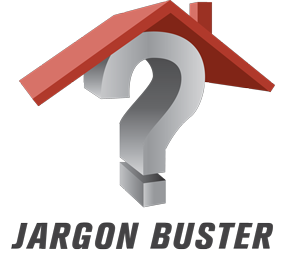As part of National Recovery Month, here is a list of terms often heard in regards to recovery and their meaning.  Co-Occurring Disorder – Co-Occurring disorders are when an individual suffers from both a substance use and mental health disorder, such as anxiety, depression or other mood disorders. Continuity of Care – Continuity of care describes the continuum of care, including pretreatment, treatment, continuing care and on-going support to sustain long-term recovery. Continuity of care provides individuals access to a full-range of stage-appropriate services at any point in the recovery process. Discrimination – Discrimination is treating someone less favorably than someone else because he or she has, once had, or is regarded as having a disability. Medication Assisted Treatment – Medication assisted treatment (MAT) is the use of medications, in combination with counseling and behavioral therapies, to provide a whole-patient approach to the treatment of substance use disorders. MAT is clinically driven with a focus on individualized patient care. Peer-to-Peer Recovery Support – Peer-to-peer services support recovery and are designed and delivered by peers—people who have shared the experiences of addiction and recovery. Recovery – Recovery from alcohol and drug problems is a process of change through which an individual achieves abstinence and improved health, wellness, and quality of life. Recovery Oriented Systems of Care – Recovery-oriented systems support person-centered and self-directed approaches to care that build on the strengths and resilience of individuals, families, and communities to take responsibility for their sustained health, wellness and recovery from alcohol and drug problems. Self-help Groups – Self-help groups are mutual aid groups or recovery support services that include 12-step programs, support groups, and peer counseling groups that meet on a regular basis. Stigma – Stigma is the prejudice and discrimination associated with substance use and mental health disorders. Stigma serves as a barrier for individuals and their family members in regards to seeking and receiving treatment. Substance Use Disorder – Substance use disorders involve the dependence on or abuse of alcohol and/or drugs, including the nonmedical use of prescription drugs.
Co-Occurring Disorder – Co-Occurring disorders are when an individual suffers from both a substance use and mental health disorder, such as anxiety, depression or other mood disorders. Continuity of Care – Continuity of care describes the continuum of care, including pretreatment, treatment, continuing care and on-going support to sustain long-term recovery. Continuity of care provides individuals access to a full-range of stage-appropriate services at any point in the recovery process. Discrimination – Discrimination is treating someone less favorably than someone else because he or she has, once had, or is regarded as having a disability. Medication Assisted Treatment – Medication assisted treatment (MAT) is the use of medications, in combination with counseling and behavioral therapies, to provide a whole-patient approach to the treatment of substance use disorders. MAT is clinically driven with a focus on individualized patient care. Peer-to-Peer Recovery Support – Peer-to-peer services support recovery and are designed and delivered by peers—people who have shared the experiences of addiction and recovery. Recovery – Recovery from alcohol and drug problems is a process of change through which an individual achieves abstinence and improved health, wellness, and quality of life. Recovery Oriented Systems of Care – Recovery-oriented systems support person-centered and self-directed approaches to care that build on the strengths and resilience of individuals, families, and communities to take responsibility for their sustained health, wellness and recovery from alcohol and drug problems. Self-help Groups – Self-help groups are mutual aid groups or recovery support services that include 12-step programs, support groups, and peer counseling groups that meet on a regular basis. Stigma – Stigma is the prejudice and discrimination associated with substance use and mental health disorders. Stigma serves as a barrier for individuals and their family members in regards to seeking and receiving treatment. Substance Use Disorder – Substance use disorders involve the dependence on or abuse of alcohol and/or drugs, including the nonmedical use of prescription drugs.
Recovery Jargon




